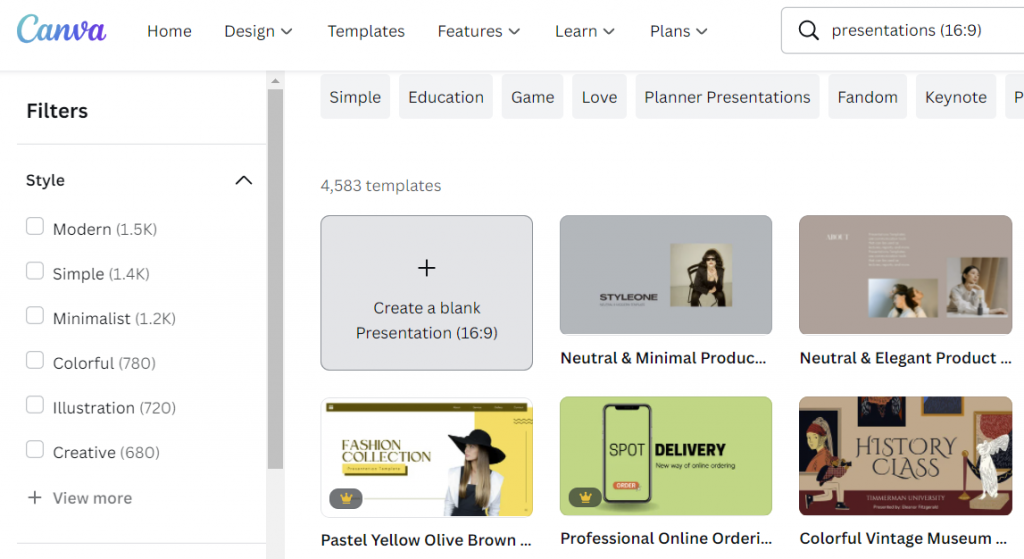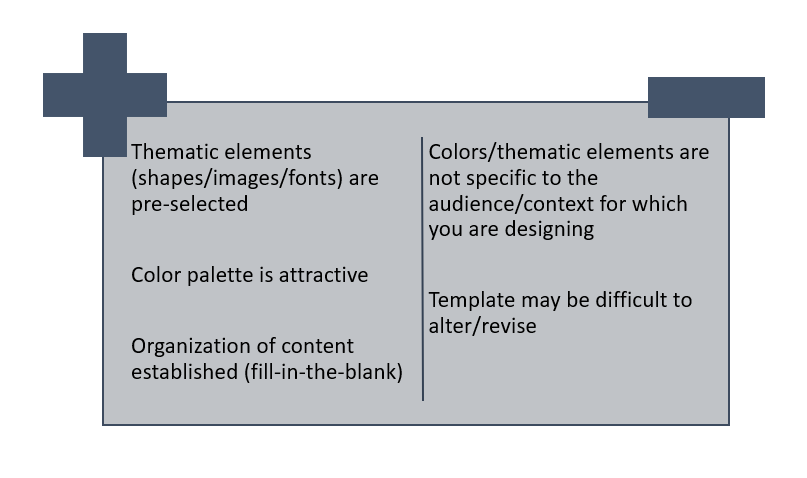Unit 3 — Technical & Professional Communication Genres
Genres are forms of writing defined by specific purposes and conventions. Technical and professional writing genres include reports, instructions, documentation, manuals, proposals, presentations, employment documents, letters/memos/emails, and much more. To write effectively in any genre requires applying what you’ve already learned about audience analysis and plain language and technical writing style AND then applying genre-specific conventions regarding document formatting and organization.
Writers may find helpful templates available when writing in a new genre. In MSWord, one can find templates for writing common, everyday correspondence, from letters to proposals.

With design programs like Canva or Venngage, one can find templates for design-rich genres like infographics and presentations.

Benefits and Drawbacks of Using Templates
Whether or not you choose to use a template depends on several factors: how much time do you want to spend, how important is it to you that the document is a completely original design, how comfortable are you working within and revising within a template, and–most important–is there a template available that is a good match for the rhetorical situation in question?
A few pros/cons to consider:

Content on this page is written by Baye Herald for Technical Communication Across the Professions and is licensed under a Creative Commons Attribution-NonCommercial-ShareAlike 4.0 International License.
a category of artistic, musical, or literary composition characterized by a particular style, form, or content
